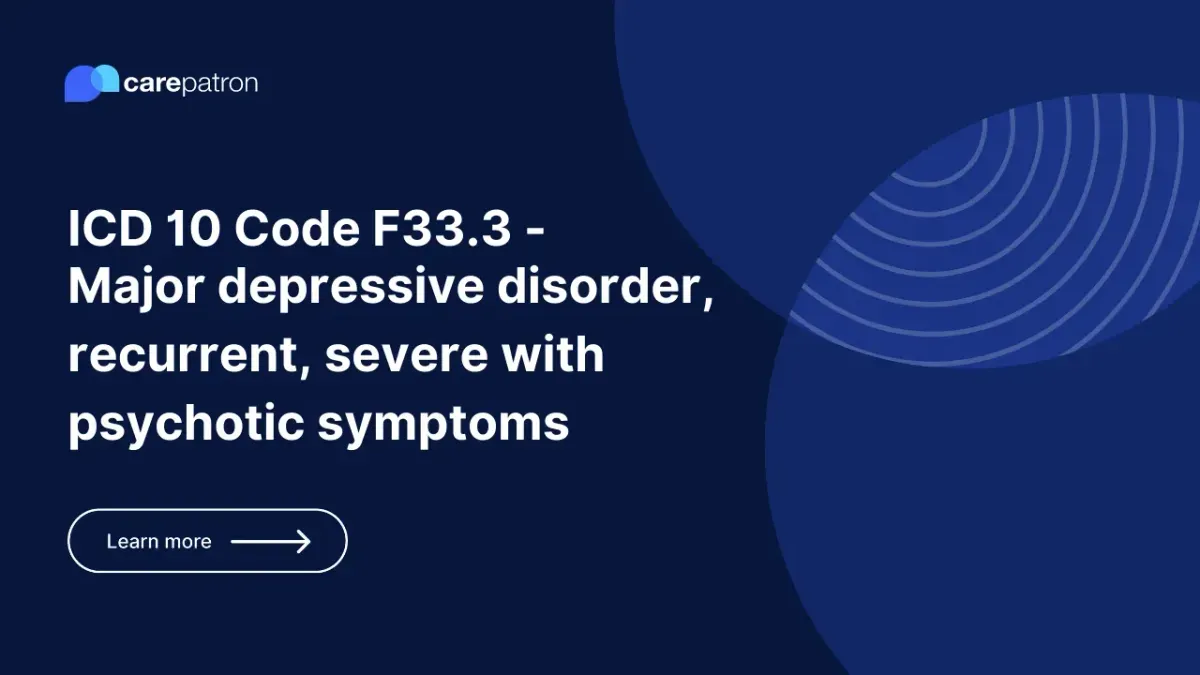
F33.3 – Major depressive disorder, recurrent, severe with psychotic symptoms
Learn about the ICD-10-CM code F33.3 for major depressive disorder, recurrent, severe with psychotic symptoms. Explore clinical info, FAQs, and more.
Use Code
EHR and practice management software
Get started for free
*No credit card required
Free
$0/usd
Unlimited clients
Telehealth
1GB of storage
Client portal text
Automated billing and online payments
